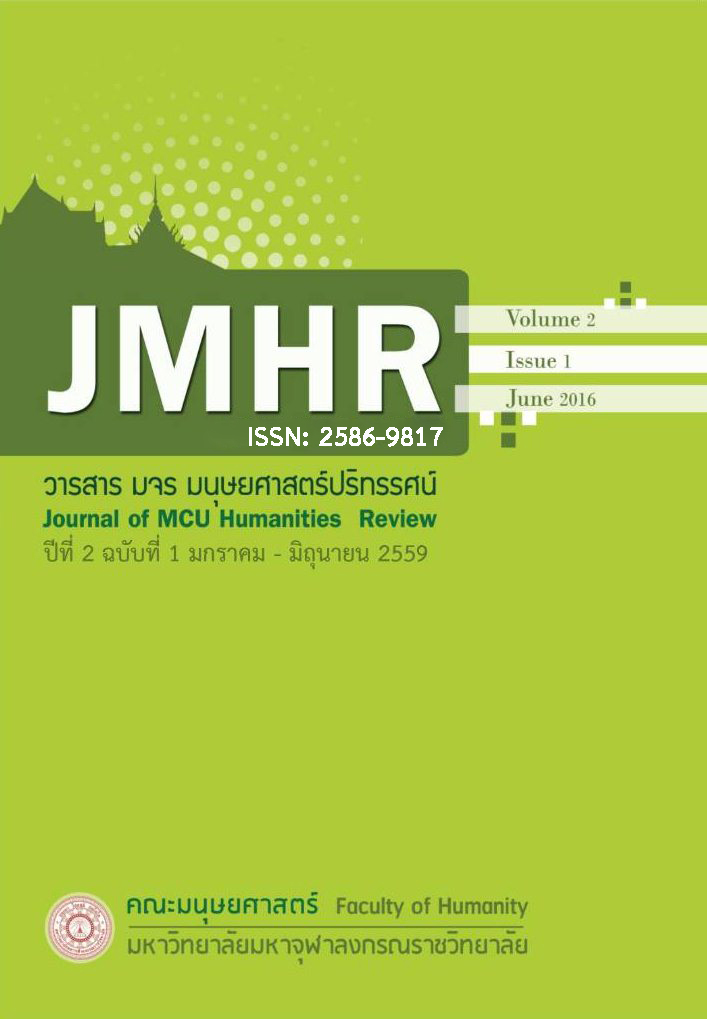เกณฑ์การตัดสินความดีในพุทธปรัชญาเถรวาทกับปรัชญาอุปนิษัท : วิเคราะห์เชิงเปรียบเทียบ
บทคัดย่อ
บทความวิชาการนี้มีความประสงค์ที่จะวิเคราะห์องค์ประกอบของแนวคิดเรื่องความดี และเนื้อหาที่เกี่ยวข้องกับความดีในเชิงเปรียบเทียบระหว่างพุทธปรัชญาและปรัชญาอุปนิษัทเนื่องจากแนวคิดทั้งสองนี้มีทั้งลักษณะเหมือนกันและแตกต่างกัน โดยใช้เกณฑ์หลักและเกณฑ์ร่วมในด้านการตัดสินความดี โดยมีสมมติฐานที่ว่าเมื่อแนวคิดเชิงอภิปรัชญาแตกต่างกัน ประเด็นญาณวิทยาและคุณวิทยาต้องแตกต่างกันด้วย คือพุทธปรัชญาตั้งอยู่บนพื้นฐานของอนัตตา ส่วนปรัชญาอุปนิษัทตั้งอยู่บนพื้นฐานของอาตมันวาท ผู้เขียนบทความวิชาการนี้จึงมีความประสงค์จะเปรียบเทียบกันโดยมีสมมติฐานที่ตั้งไว้คือเมื่อแนวคิดเชิงอภิปรัชญามีฐานแตกต่างกันย่อมทำให้ฐานะของความเข้าใจเชิงญาณวิทยาและคุณวิทยาแตกต่างกันด้วย โดยมีเป้าหมายเพื่อวิเคราะห์ให้เห็นความเหมือนกันและแตกต่างกันอย่างชัดเจนซึ่งจะทำให้เกิดความเข้าใจและไม่เกิดความสับสนระหว่างแนวปรัชญาพุทธเถรวาทที่เน้นเรื่องหลักอนัตตากับปรัชญาอุปนิษัทสายเทวนิยมซึ่งเน้นเรื่องอัตตา






